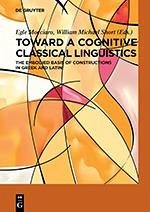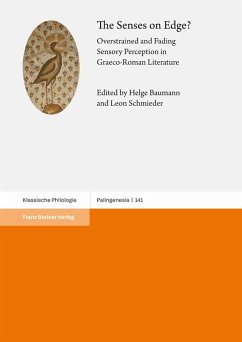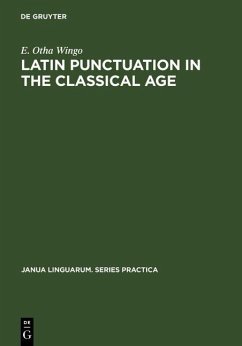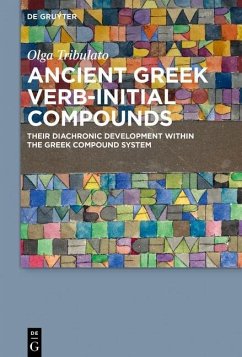
Toward a Cognitive Classical Linguistics (eBook, PDF)
The Embodied Basis of Constructions in Greek and Latin

PAYBACK Punkte
0 °P sammeln!
This volume gathers a series of papers that bring the study of grammatical and syntactic constructions in Greek and Latin under the perspective of theories of embodied meaning developed in cognitive linguistics. Building on the momentum currently enjoyed by cognitive-functional approaches to language within the field of Classics, its contributors adopt, in particular, a 'constructional' approach that treats morphosyntactic constructions as meaningful in and of themselves. Thus, they are able to address the role of human cognitive embodiment in determining the meanings of linguistic phenomena a...
This volume gathers a series of papers that bring the study of grammatical and syntactic constructions in Greek and Latin under the perspective of theories of embodied meaning developed in cognitive linguistics. Building on the momentum currently enjoyed by cognitive-functional approaches to language within the field of Classics, its contributors adopt, in particular, a 'constructional' approach that treats morphosyntactic constructions as meaningful in and of themselves. Thus, they are able to address the role of human cognitive embodiment in determining the meanings of linguistic phenomena as diverse as verbal affixes, discourse particles, prepositional phrases, lexical items, and tense semantics in both Greek and Latin.
Dieser Download kann aus rechtlichen Gründen nur mit Rechnungsadresse in A, B, BG, CY, CZ, D, DK, EW, E, FIN, F, GR, HR, H, IRL, I, LT, L, LR, M, NL, PL, P, R, S, SLO, SK ausgeliefert werden.













